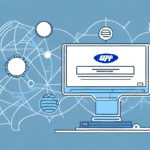Why Is FedEx Ship Manager Running So Slow?
If you're experiencing slow performance with FedEx Ship Manager, you're not alone. This issue can be frustrating and time-consuming, leading to delayed shipments and unhappy customers. In this article, we'll explore the importance of FedEx Ship Manager, common reasons for slow performance, tips to troubleshoot the issue, and how to optimize your system for faster performance. We'll also examine the impact of slow performance on your business, the benefits of upgrading your shipping software, and compare FedEx Ship Manager with other shipping platforms. Let's dive in.
Understanding the Importance of FedEx Ship Manager
FedEx Ship Manager is a robust shipping platform that streamlines the shipping process for businesses of all sizes. It allows you to create shipping labels, schedule pickups, track packages, and manage your shipping history all in one place. This can save you time and reduce errors, ultimately improving your bottom line. However, if FedEx Ship Manager is running slow, it can have the opposite effect, leading to wasted time and frustrated customers.
One of the key benefits of using FedEx Ship Manager is the ability to customize your shipping preferences. You can set up default shipping options, such as package weight and dimensions, carrier preferences, and delivery options. This customization ensures that your shipments are consistent and accurate. Additionally, you can set up notifications to receive alerts when packages are delivered or if there are any delays or issues with your shipments.
Another important feature of FedEx Ship Manager is its integration capabilities with other business systems, such as e-commerce platforms and inventory management software. This integration helps streamline your entire shipping process, from order fulfillment to delivery. By automating these processes, you can reduce errors and improve efficiency, ultimately saving you time and money.
Common Reasons for Slow FedEx Ship Manager Performance
Several factors can contribute to slow performance when using FedEx Ship Manager. Understanding these can help you identify and address the underlying issues:
- Outdated Software or Hardware: If your system is not up to date, it may struggle to handle the demands of the software, leading to slow performance.
- Poor Internet Connection: FedEx Ship Manager relies on a stable and fast internet connection. A slow or unstable connection can cause delays in processing shipments.
- Large or Complex Shipment Data: Processing large or complex orders can take longer, especially if the data is not optimized.
- Server Issues: Temporary server issues on FedEx’s end can also lead to slow performance.
Addressing these factors can significantly improve the performance of FedEx Ship Manager.
Tips to Troubleshoot and Optimize FedEx Ship Manager
To enhance the performance of FedEx Ship Manager, consider the following troubleshooting and optimization tips:
- Update Software and Hardware: Ensure that your operating system, browser, and any related software or hardware components are up to date.
- Improve Internet Connection: Upgrade to a faster and more reliable internet connection to support seamless shipping operations.
- Clear Browser Cache: Regularly clearing your browser’s cache and cookies can free up space and improve performance.
- Disable Unnecessary Browser Extensions: Extensions can consume resources and slow down the application. Disable those that are not essential.
- Optimize Shipment Data: Simplify and organize your shipment data to reduce processing time.
- Restart Your Computer: A simple restart can clear temporary files and processes that may be affecting performance.
If these steps do not resolve the issue, contacting FedEx customer support for further assistance is recommended.
The Impact of Slow FedEx Ship Manager on Your Business
Slow performance of FedEx Ship Manager can have several adverse effects on your business:
- Customer Dissatisfaction: Delayed shipments can lead to unhappy customers and damage your business reputation.
- Lost Revenue: Delays can result in lost sales and revenue, especially if customers turn to competitors for faster service.
- Reduced Productivity: Time wasted dealing with slow software can reduce overall business productivity.
To mitigate these impacts, it is essential to ensure that FedEx Ship Manager operates efficiently. Regular monitoring and maintenance can help prevent performance issues before they affect your business.
The Benefits of Upgrading Your Shipping Software
If you're experiencing persistent performance issues with FedEx Ship Manager, it may be time to consider upgrading your shipping software. Upgrading to a more modern and efficient platform offers several advantages:
- Enhanced Features: Modern shipping software often includes advanced features such as real-time tracking, automated customs forms, and better integration capabilities.
- Improved Efficiency: Upgraded software can streamline processes, reduce errors, and speed up shipment processing times.
- Data Analytics: Advanced reporting and analytics tools provide insights into your shipping performance, helping you make informed decisions.
- Better Integration: Newer platforms offer better integration with other business systems, such as inventory management systems, accounting software, and e-commerce platforms.
Upgrading your shipping software can help keep your business competitive and ensure a smooth shipping process.
Comparing FedEx Ship Manager with Other Shipping Platforms
While FedEx Ship Manager is a popular and reliable shipping platform, there are other options available that may better suit your business needs:
- UPS WorldShip: Offers comprehensive shipping solutions with strong integration capabilities and advanced tracking features. Learn more.
- DHL EasyShip: Known for its global shipping options and user-friendly interface. Discover more.
- USPS Click-N-Ship: Ideal for smaller businesses, offering simple shipping options and budget-friendly rates. Explore here.
Choosing the right shipping platform depends on your specific business needs, such as shipping volume, integration requirements, and budget. Evaluating these factors will help you select the best solution for your operations.
Best Practices for Using FedEx Ship Manager Efficiently
To maximize the efficiency of FedEx Ship Manager, consider implementing the following best practices:
- Regular Updates: Keep your software and hardware up to date to ensure optimal performance.
- Strong Internet Connection: Maintain a reliable and fast internet connection to support seamless operations.
- System Optimization: Regularly clear cache and cookies, and manage system resources to enhance performance.
- Training and Support: Utilize FedEx’s training resources and customer support to stay informed about best practices and updates.
- Stay Informed: Keep up with the latest industry trends and technologies to continuously improve your shipping processes.
Future Developments in Shipping Software: What to Expect from FedEx Ship Manager
As technology continues to evolve, shipping software like FedEx Ship Manager is expected to incorporate new features and improvements. Future developments may include:
- Advanced Tracking: Enhanced real-time tracking capabilities for better visibility and customer satisfaction.
- Automation: Increased automation of shipping processes, reducing manual input and errors.
- Integration with Emerging Technologies: Integration with AI and machine learning for predictive analytics and smarter shipping solutions.
- Enhanced Security: Improved security measures to protect sensitive shipping data and transactions.
Staying informed about these advancements will help you adapt and leverage new features to improve your shipping operations further.
Conclusion
Slow performance of FedEx Ship Manager can significantly impact your business by causing delays, reducing productivity, and affecting customer satisfaction. By understanding the common reasons for slow performance and implementing effective troubleshooting and optimization strategies, you can enhance the efficiency of your shipping processes. Additionally, considering an upgrade to more modern shipping software and comparing different platforms can provide further benefits and competitive advantages. Adhering to best practices and staying informed about future developments will ensure that your shipping operations remain smooth and your customers remain satisfied.








